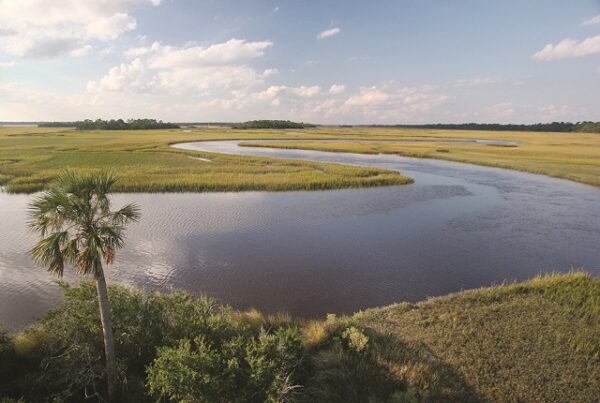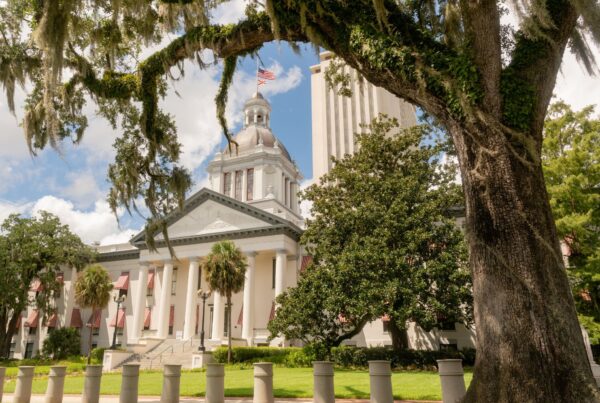Contact: Mike Saccone, National Wildlife Federation, SacconeM@nwf.org, 202-797-6634
Atlantic, Pacific Coastal Affiliates of the National Wildlife Federation Urge Interior to Scrap Coastal Drilling Plan
WASHINGTON, D.C. (February 18, 2019) — The Atlantic and Pacific coastal affiliates of the National Wildlife Federation urged the Department of the Interior in a letter today to scrap its forthcoming plan to radically expand offshore oil and gas drilling. The letter, addressed to Acting Interior Secretary David Bernhardt, mirrors the bipartisan and nearly unanimous position of coastal governors and lawmakers opposed to expanded oil and gas development on the outer continental shelf.
“The risks are too great to open up more of our coasts to drilling,” the 24 state and territorial conservation organizations said. “A spill anywhere along the Atlantic, Pacific, or Arctic shorelines would be catastrophic for wildlife and our communities. … Our oceans and marine wildlife support billions of dollars of economic activity and sustain tourism, outdoor recreation and fishing in our coastal states. We urge the Administration to throw out its plans and go back to the drawing board, and this time listen to the governors and residents of coastal states.”
“The Atlantic and Pacific coastal affiliates of the National Wildlife Federation couldn’t be clearer: There’s too much at stake for our economies, wildlife and public health to push forward with this offshore drilling plan,” said Collin O’Mara, president and CEO of the National Wildlife Federation. “Acting Secretary Bernhardt should pull this plan back as a show of good faith and his commitment to a course correction at the Interior Department.”
The letter’s signatories are:
- The Association of Northwest Steelheaders (Oregon)
- Connecticut Forest and Park Association
- Conservation Council for Hawaii
- Conservation Northwest (Washington)
- Delaware Nature Society
- Environment Council of Rhode Island
- Environmental Advocates of New York
- Environmental League of Massachusetts
- Florida Wildlife Federation
- Georgia Wildlife Federation
- National Aquarium (Maryland)
- Natural Resources Council of Maine
- Nebraska Wildlife Federation
- New Hampshire Audubon Society
- New Jersey Audubon Society
- New Mexico Wildlife Federation
- North Carolina Wildlife Federation
- Planning and Conservation League (California)
- Sociedad Ornitológica Puertorriqueña
- South Carolina Wildlife Federation
- Texas Conservation Alliance
- Vermont Natural Resources Council
- Virgin Islands Conservation Society
- Virginia Conservation Network
The National Wildlife Federation is America’s oldest and most trusted conservation organization. Its 51 affiliates lead critical wildlife conservation efforts in their states and territories and pass policy resolutions each year that guide the National Wildlife Federation’s work.
Visit the National Wildlife Federation Media Center at NWF.org/News.
Acting Secretary David Bernhardt
U.S. Department of the Interior
1849 C Street, NW
Washington DC 20240
Acting Secretary Bernhardt,
America’s sprawling coasts range more than 90,000 picturesque miles. Coastal areas are the lifeblood of small and large communities, supporting millions of jobs in the fishing, tourism and recreation sectors. They provide critical habitat for America’s iconic marine species — from orcas to manatees and otters to octopi — and support billions of dollars in economic activity. Coastal wetlands and dunes protect communities and shelter thousands of birds and mammals. That’s why every single governor from Maine to Florida and from Washington to California opposes offshore drilling off their coasts.
With the Department of the Interior expected to soon issue its new five-year plan for the National Outer Continental Shelf Oil and Gas Leasing Program, we write to you on behalf of the National Wildlife Federation, America’s largest and most trusted grassroots conservation organization, and its affiliates from California, Connecticut, Delaware, Florida, Georgia, Hawaii, Maine, Maryland, Massachusetts, Nebraska, New Hampshire, New Jersey, New Mexico, New York, North Carolina, Oregon, Puerto Rico, Rhode Island, South Carolina, Texas, Vermont, Virgin Islands, Virginia, and Washington to urge you to reconsider the Department’s stated commitment to opening nearly 100 percent of our coasts to oil and gas development.
Republican and Democratic leaders from coastal states have stood united in opposition to the unilateral pursuit of maximum offshore oil and gas drilling. The potential costs to wildlife, our communities, and our way of life are too high. This bipartisan and bicoastal outcry should serve as a wake-up call, and spark a reconsideration of the planning underway now.
The risks are too great to open up more of our coasts to drilling. A spill anywhere along the Atlantic, Pacific or Arctic shorelines would be catastrophic for wildlife and our communities. The effects of the Deepwater Horizon spill in the Gulf of Mexico may have faded from the headlines, but the cleanup continues to this day and its impacts will last for generations. Your Department’s recently announced plans to roll back the updated offshore oil and gas safety requirements, put into place after that disaster, heighten the peril.
Our oceans and marine wildlife support billions of dollars of economic activity and sustain tourism, outdoor recreation, and fishing in our coastal states. We urge the Administration to throw out its plans and go back to the drawing board, and this time listen to the governors and residents of coastal states.






